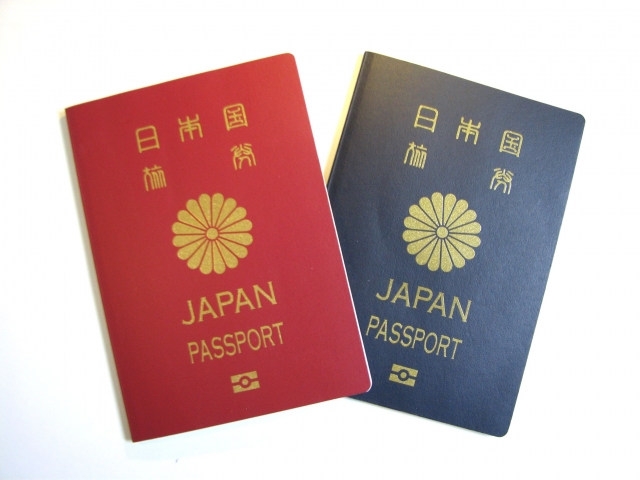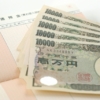“Have there been more naturalization applications recently? Let’s compare naturalization applications with permanent residency applications.”

Since around July 2019, the documents required for permanent residency applications have significantly increased.
Since around July 2019, the documents required for permanent residency applications have significantly increased. Until now, only three years’ worth of documents were required, but now, five years’ worth of residency tax certificates and tax payment certificates must be submitted. Additionally, tax payment certificates from the national tax office, which were not previously required, must now also be submitted. Furthermore, membership and payment of pensions, which were not previously examined, are now being requested.
The increase in required documents indicates that the standards of scrutiny have become stricter. This heightened scrutiny and rigidity are believed to stem from the fact that among relatively lenient standards for permanent residents in the past, there were a considerable number of foreigners who became burdens on Japanese citizens, such as those who didn’t pay taxes, sought livelihood assistance, or were without pensions, leading to social issues.
On the other hand, for naturalization applications, which grant Japanese citizenship, it was traditionally thought to be more stringent than permanent residency applications, requiring payment of national taxes and enrollment in pensions. However, since 2019, situations have arisen where permanent residency applications may be more difficult.
Since the ease or benefits of permanent residency (application) and naturalization (application) vary from person to person, I would like to compare and consider them here.
- 1. Comparing Permanent Residency (Application) and Naturalization (Application)
- 1.1. Considering the Advantages and Disadvantages of Permanent Residency and Naturalization
- 1.2. Comparing Permanent Residency and Naturalization Applications
- 1.3. The Differences between Permanent Residency and Naturalization Applications
- 1.4. Japanese Language Proficiency is Essential for Naturalization Applications
- 2. It’s Up to You to Decide Which One Fits You Best
Comparing Permanent Residency (Application) and Naturalization (Application)
Considering the Advantages and Disadvantages of Permanent Residency and Naturalization
Advantages of Permanent Residency
- No need for troublesome visa renewals
- No restrictions on activities (work content)
- Easier access to housing loans due to a certain level of creditworthiness
Disadvantages of Permanent Residency
- If one commits a crime or engages in actions subject to deportation, they become subject to deportation
- When traveling to countries other than Japan, the number of countries they can visit without a visa is limited compared to Japanese citizens
- If they leave Japan, they lose their permanent residency if they don’t return to Japan by the re-entry deadline
- Since the residence card has an expiration date, it must be renewed
Despite being a permanent resident, they are still foreigners. Apart from not needing to renew their period of stay and having no restrictions on activities, they are the same as other foreign residents in terms of residency qualifications. They cannot hold a Japanese passport and can become subject to deportation if any issues arise.
Advantages of Naturalization
- As Japanese citizens, they are completely exempt from visa procedures
- No restrictions on activities (work content)
- With a Japanese passport, they can visit a considerable number of countries without a visa
- Even if they commit crimes, they do not lose Japanese nationality, nor do they face deportation
- They have the same level of creditworthiness as native Japanese citizens
Disadvantages of Naturalization
- They must renounce their original nationality
Unless planning to live in Japan for life, there are few disadvantages to naturalization apart from having to renounce one’s original nationality. However, for those who frequently wish to return to their home country, there is a disadvantage in that they cannot stay in their home country for an extended period if they renounce their original nationality. This seems to be a reason why many people choose not to apply for naturalization.
Comparing Permanent Residency and Naturalization Applications
Here, I would like to compare and consider the “applications" themselves for permanent residency and naturalization.
First, let’s list the conditions for permanent residency and naturalization applications. Since legal documents from immigration offices can be difficult to understand, I will present them in an easy-to-understand bullet-point format.
Conditions for Permanent Residency Application
- Have good conduct
- Have a certain level of income or assets
- Have lived in Japan for 10 years or more (in the case of “settlers," 5 years or more; in the case of “spouses of Japanese nationals" and “spouses of permanent residents," marriage for 3 years or more and residing in Japan for 1 year or more, etc., there are exceptions)
- Have a period of stay of 3 years or more at the time of application
- Have paid all national and local taxes
- Have paid health insurance and public pension contributions for 2 years or more
Conditions for Naturalization Application
- Have good conduct
- Be 20 years of age or older
- Have a certain level of income or assets
- Have lived in Japan for 5 years or more
- Have paid all national and local taxes
- Have paid health insurance and public pension contributions for 1 year or more
- Have a certain level of Japanese language proficiency
The Differences between Permanent Residency and Naturalization Applications
Looking at the above conditions, there are clearly differences, but even seemingly similar conditions can have substantial differences in content. Here, I will explain the differences between permanent residency and naturalization applications in bullet points.
- Regarding income and assets, permanent residency applications are stricter. Depending on the number of dependents, it’s not easy to say something like an annual income of over 3 million yen. Naturalization is relatively more lenient, even with lower income levels.
- To prove income and tax payments, both require submission of local tax assessment certificates and tax payment certificates. However, for permanent residency applications, five years’ worth of documents must be submitted, whereas for naturalization applications, only two years’ worth are
- Regarding income and assets, permanent residency applications are stricter. It varies depending on the number of dependents, so it’s not easy to say something like an annual income of over 3 million yen, but naturalization allows relatively lower income levels to be approved.
- Both permanent residency and naturalization applications require the submission of certificates of residence tax payment and tax payment proof to prove income and tax payment. However, for permanent residency applications, five years’ worth of documents must be submitted, while only two years’ worth is required for naturalization applications. This not only indicates a difference in documentation but also implies that permanent residency applications require a longer and more stable income.
- For permanent residency applications, it is necessary to be permitted a period of stay of three years or more at the time of application, while there is no such requirement for naturalization applications. However, those who do not receive a three-year period have reasonable grounds, so naturalization applications are also rigorously reviewed (considered a negative point).
- Regarding health insurance and public pension, permanent residency applications require enrollment and payment for two years or more, while naturalization applications require one year or more. Additionally, for permanent residency applications, lump-sum payments of forgotten health insurance premiums are not allowed, whereas for naturalization applications, lump-sum payments are permitted.
- For permanent residency applications, being a foreigner means that Japanese language ability is not required. Even if English documents are included in the application, they can be submitted. However, naturalization applications are strictly for becoming Japanese, so a certain level of Japanese language proficiency is required, and all application documents must be written in Japanese, or foreign documents must be translated into Japanese before submission.
Japanese Language Proficiency is Essential for Naturalization Applications
Japanese language proficiency is essential for naturalization applications. Even if you are married to a Japanese spouse, you cannot naturalize without Japanese language ability. This means that in some cases, only the father and children in a family can apply for naturalization, while the mother cannot.
Generally, it is said to be at the level of reading and writing Kanji equivalent to that of a third-grade elementary school student, but what level is this exactly?
In the first grade of elementary school, students learn 70 Kanji characters, 160 in the second grade, and 200 in the third grade, for a total of 430 characters.
In contrast, the Kanji characters learned in the Japanese Language Proficiency Test (JLPT) N5 and N4 levels are 300 each, for a total of 600 characters up to N4. Looking at this alone, N4 level proficiency seems sufficient.
Although there is a possibility with N4 level proficiency, it may be difficult. It’s better to think that at least N3 level proficiency is required.
It’s Up to You to Decide Which One Fits You Best
It’s not possible to recommend either permanent residency or naturalization applications. Ultimately, you have to decide based on which one fits your preferences and circumstances.
However, I think it’s not just about Japanese language ability. If you intend to live in Japan for life, regardless of anything else, I believe you should study Japanese. High Japanese language proficiency will be advantageous in both daily life and work. While there are many foreigners who can live without understanding Japanese, I think it’s contradictory to come to Japan and only live in a small foreign community.










